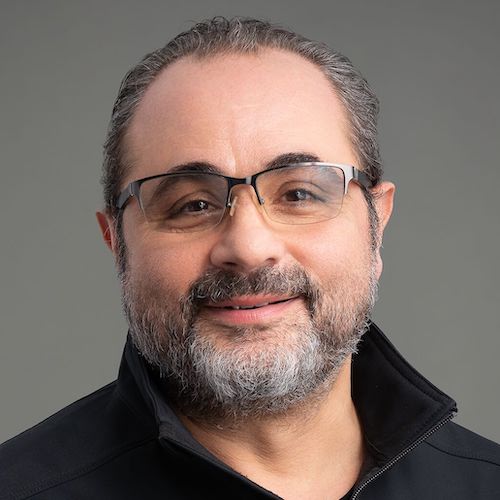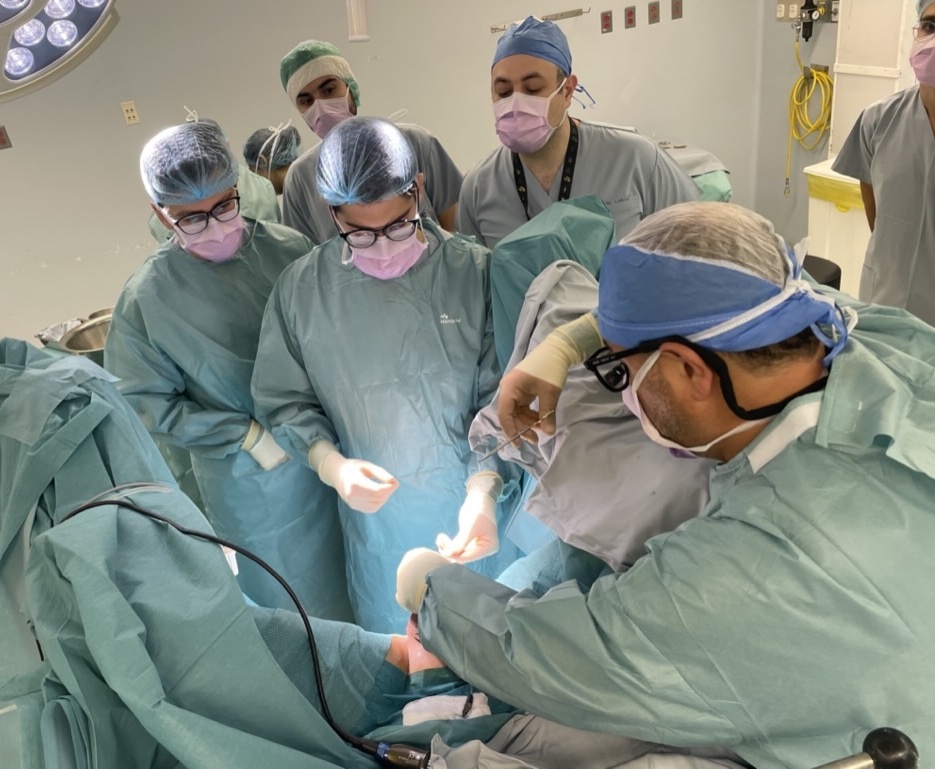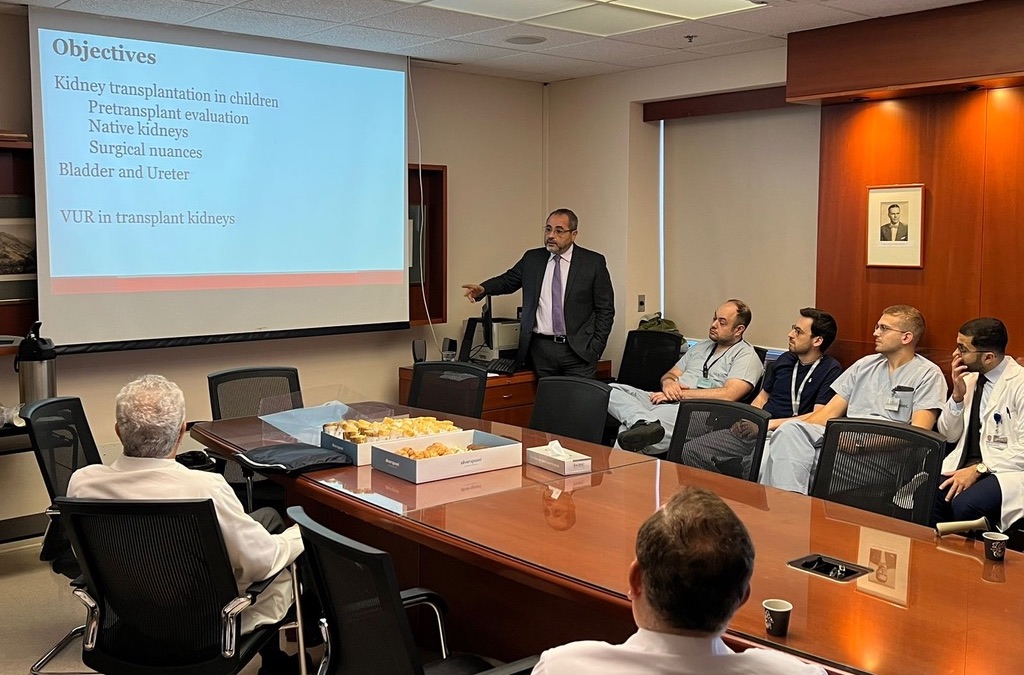Last month, Pediatric Urology Division Chief Walid Farhat, MD, traveled to Beirut, Lebanon, on a medical mission as part of a UW SMPH Global Surgery initiative. We are grateful to Dr. Farhat for taking the time to share this eloquent account of his experience.
 In a heartfelt and impactful two-week medical mission from Oct. 2-14, I journeyed to Beirut, Lebanon, with a commitment to providing critical medical care and education in the field of pediatric urology. My mission took place in two renowned hospitals, the American University of Beirut and Hotel Dieu Hospitals, both integral to the city’s healthcare landscape.
In a heartfelt and impactful two-week medical mission from Oct. 2-14, I journeyed to Beirut, Lebanon, with a commitment to providing critical medical care and education in the field of pediatric urology. My mission took place in two renowned hospitals, the American University of Beirut and Hotel Dieu Hospitals, both integral to the city’s healthcare landscape.
Nestled on Lebanon’s Mediterranean coastline, Beirut is not only the country’s capital but also its largest city. It boasts a rich history and a vibrant atmosphere, with a diverse population, including a significant number of refugees from surrounding nations. As of my visit in 2023, Beirut was home to approximately 2.4 million people, making it one of the most densely populated urban centers in the region.
Despite its historical charm and allure, contemporary Beirut faces significant challenges marked by economic and political crises. The city, once celebrated as the ‘Paris of the Middle East,’ grapples with issues that have had profound implications for its healthcare system and the well-being of its inhabitants. Economic instability and political unrest have, at times, strained healthcare infrastructure and resources, underlining the urgent need for medical missions and educational support.

During my mission, I had the privilege of performing a variety of complex surgical procedures, each aimed at improving the lives of patients in need:
- Hypospadias Repair: Surgical interventions to correct hypospadias, a congenital condition where the urethral opening is not at the tip of the penis but rather on the underside.
- Urethrostomies: Procedures creating artificial openings in the urethra, often necessary for patients with specific medical conditions such as strictures or obstructions.
- Botox Injections: Administered to address medical conditions benefiting from the muscle-relaxing effects of botulinum toxin, such as in the treatment of urinary incontinence or overactive bladder.
- Cystoscopy: A diagnostic procedure involving the insertion of a thin tube equipped with a camera into the bladder, enabling visual inspection and diagnosis of bladder-related issues.
- Pyeloplasty: A surgical repair of the renal pelvis, primarily addressing obstructions or narrowing in the ureteropelvic junction.
- Pyelolithotomy: A procedure focused on the removal of kidney stones from the renal pelvis or kidney, addressing conditions like nephrolithiasis.

My mission extended beyond immediate patient care to encompass a commitment to nurturing education and fostering long-term growth. This included two lectures to enrich the medical knowledge and competence of the local medical community, particularly in the realm of pediatric urology. My first lecture underscored the paramount importance of Education and Competency in the surgical field, advocating for a culture of continual learning and improvement. My second lecture delved into the intricacies of Kidney Transplantation in Children, enhancing their capacity to address complex medical challenges.
During my visit, I actively engaged with residents and medical students and even recruited some to participate remotely in research projects. This collaborative approach aimed to ensure that the knowledge and skills imparted during the mission would leave a lasting and positive imprint on healthcare in Beirut, persevering against the economic and political challenges faced by the city.